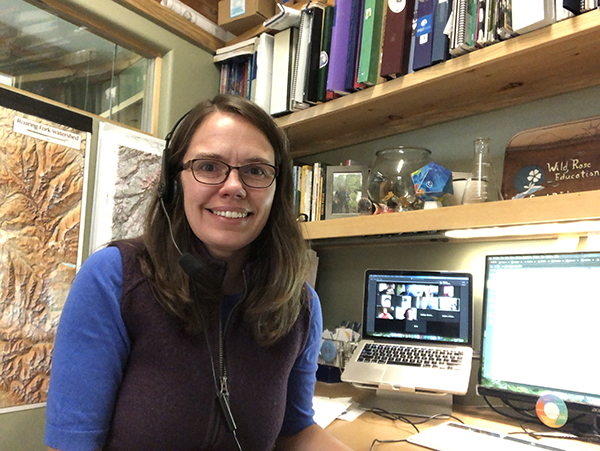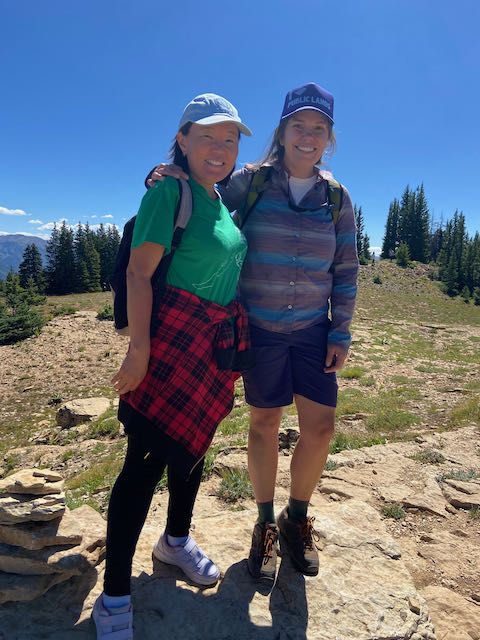Workshops that Work: Believe it or Not
An adult student from a recent training workshop told me “no one will believe you, they don’t know that virtual learning can be so effective, engaging, fun, and thought provoking. Even if you tell them it will be, they won’t get it.” This is true. Most people have never engaged in super effective learning experiences; most are mediocre at best.
I explain to colleagues and potential adult students that my virtual workshops are engaging and interactive. You have to be there, I don’t record them. Participating while driving a car just won’t cut it. They are not webinars. The potential students and colleagues respond as if they get it, maybe. I continue on, really, my workshops are rigorous, thought provoking, and participants actually have to engage and do stuff; they cannot sit back and just listen. My colleagues and potential students don’t really picture what I’m trying to explain.
Before having to pivot to the virtual teaching platform because of the global pandemic, I was an effective teacher both in the field and in the classroom and had been for many years. I was continually committed to professional learning to become a better instructor and facilitator by expanding my repertoire of teaching strategies. Then, in June 2020 when I embraced teaching my first virtual professional development course, I realized I could do this virtual thing. I had spent most of April and May 2020 researching how higher education professors had been teaching virtual classes for many years. By the end of 2020 I had been asked to offer at least two workshops to colleagues on how to teach virtually; mostly reminding them to hold on to all the good pedagogy and teaching skills they already had and to fully embrace this new type of chalk board so to speak.
Using skills from the field of heritage interpretation, student-centered teaching strategies, facilitation tools, equity and inclusion training, culturally responsive teaching, phenomenon and inquiry teaching practices, making thinking visible techniques, leadership institutes, and the basics of environmental education I create and facilitate learning experiences for people. I am committed to the ‘how’ we teach and ‘how’ people truly learn. I am not interested in entertaining people; nor do I find it necessary to share everything I know about the specific subject of the training. Participants have to engage in the process of learning, explore new ideas, and integrate those new ideas into what they already know. It’s a rigorous process.
These learning experiences (trainings and workshops) are grounded in a shared understanding that everyone is expected to ‘be here,’ present and ready to engage in the time together contributing to each others’ experience as a learning community. It is also explicitly named that every participant is an expert and brings tremendous life experience and expertise to the table (regardless of the topic at hand) and is invited to share their unique perspective. Everyone is encouraged to practice ‘raggedy thinking’ while exploring, wrestling, and talking through new concepts and ideas with peers, all while knowing that what is true today may very well be different tomorrow. Building this learning community from the very beginning of every workshop sets the table for people to feel welcome, valued, and heard. They are set up to embrace an authentic journey of learning together.
It is the ‘how’ that makes my workshops, courses, and trainings different than what most people have ever experienced. It continues to surprise me that what I am doing is so novel for so many. All it is is effective authentic teaching and facilitating that is done with incredible intention, rigor, and expectation of full participation by the students; and it works believe it or not.
By Sarah R Johnson, MAEd
Sarah earned her Masters of Arts in Natural Science and Environmental Education at Hamline University in St. Paul, Minnesota. She teaches professional development trainings and workshops on minimizing recreational impacts and wildland ethics, rivers and water in the West, public lands, and teaching curiosity and wonder. Join in one of her upcoming workshops by learning more at www.WildRoseEducation.com.
 |
| Virtual teaching looks like this. |
I explain to colleagues and potential adult students that my virtual workshops are engaging and interactive. You have to be there, I don’t record them. Participating while driving a car just won’t cut it. They are not webinars. The potential students and colleagues respond as if they get it, maybe. I continue on, really, my workshops are rigorous, thought provoking, and participants actually have to engage and do stuff; they cannot sit back and just listen. My colleagues and potential students don’t really picture what I’m trying to explain.
Before having to pivot to the virtual teaching platform because of the global pandemic, I was an effective teacher both in the field and in the classroom and had been for many years. I was continually committed to professional learning to become a better instructor and facilitator by expanding my repertoire of teaching strategies. Then, in June 2020 when I embraced teaching my first virtual professional development course, I realized I could do this virtual thing. I had spent most of April and May 2020 researching how higher education professors had been teaching virtual classes for many years. By the end of 2020 I had been asked to offer at least two workshops to colleagues on how to teach virtually; mostly reminding them to hold on to all the good pedagogy and teaching skills they already had and to fully embrace this new type of chalk board so to speak.
Using skills from the field of heritage interpretation, student-centered teaching strategies, facilitation tools, equity and inclusion training, culturally responsive teaching, phenomenon and inquiry teaching practices, making thinking visible techniques, leadership institutes, and the basics of environmental education I create and facilitate learning experiences for people. I am committed to the ‘how’ we teach and ‘how’ people truly learn. I am not interested in entertaining people; nor do I find it necessary to share everything I know about the specific subject of the training. Participants have to engage in the process of learning, explore new ideas, and integrate those new ideas into what they already know. It’s a rigorous process.
These learning experiences (trainings and workshops) are grounded in a shared understanding that everyone is expected to ‘be here,’ present and ready to engage in the time together contributing to each others’ experience as a learning community. It is also explicitly named that every participant is an expert and brings tremendous life experience and expertise to the table (regardless of the topic at hand) and is invited to share their unique perspective. Everyone is encouraged to practice ‘raggedy thinking’ while exploring, wrestling, and talking through new concepts and ideas with peers, all while knowing that what is true today may very well be different tomorrow. Building this learning community from the very beginning of every workshop sets the table for people to feel welcome, valued, and heard. They are set up to embrace an authentic journey of learning together.
It is the ‘how’ that makes my workshops, courses, and trainings different than what most people have ever experienced. It continues to surprise me that what I am doing is so novel for so many. All it is is effective authentic teaching and facilitating that is done with incredible intention, rigor, and expectation of full participation by the students; and it works believe it or not.
By Sarah R Johnson, MAEd
Sarah earned her Masters of Arts in Natural Science and Environmental Education at Hamline University in St. Paul, Minnesota. She teaches professional development trainings and workshops on minimizing recreational impacts and wildland ethics, rivers and water in the West, public lands, and teaching curiosity and wonder. Join in one of her upcoming workshops by learning more at www.WildRoseEducation.com.


Comments
Post a Comment